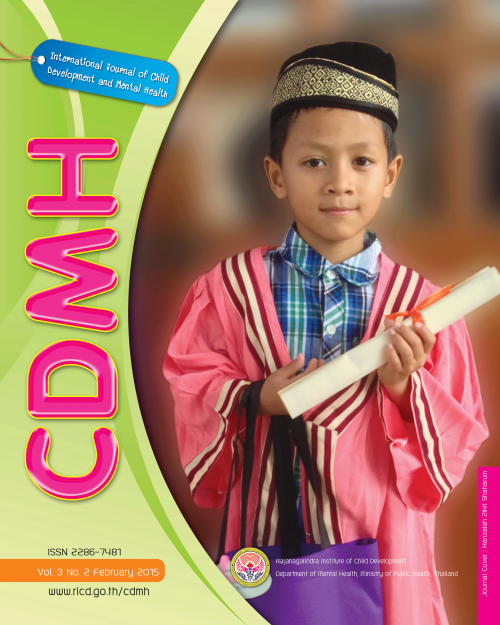Providers’ Perspective of Special Education for Children
Main Article Content
Abstract
All children are entitled to educational
rights in accordance to the international treaties
(Convention on the Rights of the Child) and
national laws of the Philippines. However, children
with special needs usually do not receive these
basic rights because of structural and political
conditions. Therefore, this study focuses on the
provision of education to children with special
needs in a government operated school in a city
of central Philippines. Specifically, this aims to
describe the current services of a special education
center, the involvement of its stakeholders in
the development of children, challenges in their
service provision; and their recommendations
for program development. The study utilized a
descriptive qualitative design through a key
informant interview utilizing an interview guide.
A total of eight informants were interviewed and
selected through purposive sampling with selection
criteria of a) providing direct child development
services to students and b) teaching for at least 1
year in the school. Findings of the study provided
basic demographic profiles of the teachers
who are mostly female, married and between 21
to 53 years old with an average age of 38. The
service was described by the kind of service,
materials provided and development conditions
being catered for. In addition, the support of
the teacher, parents and the government were
described. These highlight the challenges in the
provision of special education in areas of assessment
and diagnosis, instruction, parents’ involvement,
physical set-up and educational materials.
Recommendations were then made regarding how
to further their service provision. In conclusion,
children have not received full access to due
to social and attitudinal problems. Additionally,
almost all kinds of development conditions were
catered for; hindrances were noted in areas of
structure, instruction and attitude, which could be
highlighted for program development.
Article Details
The authors retain copyright and permit the journal the copyright of first publication
Articles, once having passed the review process and accepted for publication in the CDMH Journal, are copyrighted under the CDMH Journal, Department of Mental Health, Ministry of Public Health. Please be aware distribution of CDMH Journal content for commercial purposes without permission is expressly prohibited. However, distribution with intent to educate, advocate, or spread awareness within the general public and research communities is permitted and encouraged with the understanding that the CDMH Journal Editorial Board do not hold jurisdiction or liability for any accompanying comments, text, or information from third parties, either in favor for or against the original article’s assertions, conclusions, methodology, or content.


